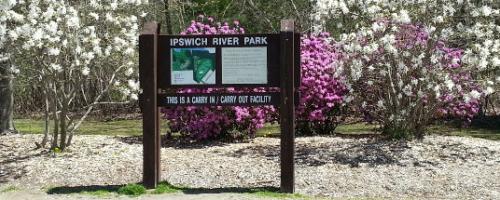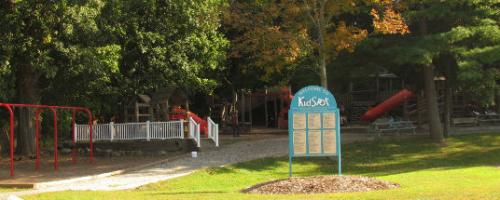How Much to Water Your Lawn
In North Reading, the volume of water used on a summer day can be two or more times the volume used on an average winter day. Lawn watering is almost exclusively the cause of this increase in water demand. Given that the summer is the time the Ipswich River is naturally the most stressed, becoming more efficient in our lawn watering practices can provide a significant benefit to the health of the river. The following tips will help you maintain a healthy lawn and garden while conserving water!
The amount of water you apply to your lawn is directly related to how deep the roots will grow. The spring is a good time to prepare your lawn for the dryer summer months ahead. By not watering your lawn in the spring, the roots of the grass and turf will grow deeper into the soil. Deep root growth allows the grass to survive dry spells without constant watering. If you water often during the spring, the roots of the grass will stay near the surface. Shallow roots are more likely to dry out in between wettings and, as a result, your grass will go dormant and turn brown.
Many other common problems associated with lawns and gardens are the result of over-watering. Over-watering may cause restricted rooting, and result in lawns that are too lush and cannot withstand traffic. Too much watering can also cause fungal growth and nutrient runoff.
The basic rule of thumb when watering is water infrequently and deeply!
The WORST WAY to water a lawn is to water lightly and often. This keeps the roots near the surface where they get too hot and too dry. Daily, light irrigations also promote drought hardy grasses such as crabgrass.
The BEST WAY to water a lawn is to water for one hour twice a week. A complete wetting of the turfgrass root zone is most beneficial for your plants. Wait until the lawn shows signs of stress, and then water deeply. The soil should be wetted to a depth of 6 inches when watering and it should be a deep soaking rather than a shallow flooding. Remember, except where lawns are permitted to go dormant, apply only enough water to bring the total amount of rain plus added water to ONE INCH IN ONE WEEK.
Research has shown that deep, infrequent irrigation when the leaves begin to curl (indicating mild water stress) results in deeper roots and higher quality grass during the dry periods of summer as compared to lawns that were watered on a daily basis.










